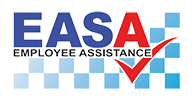Trauma Management
From time to time traumatic and critical incidents involving stress, injury or tragedy occur in the workplace. These events often occur without notice and can affect an entire workforce.
Timely situational assessment and strategic response planning is critical. Engaging expert support from outside the organisation is most effective to ensure thorough situation and impact assessment and that the appropriate response strategy is implemented.
EASA’s critical incident intervention work has assisted many management teams and organisations to handle traumatic workplace incidents, crisis situations and natural disasters.
Whatever the scale of incident or emergency – catastrophic or relatively small – EASA’s response strategy focusses on:
• the wellbeing of affected personnel after the incident via immediate, direct support and assistance services that support longer-term recovery.
• situation assessment and consultation, plus advice and support for incident managers.
Critical Incident Response Team
EASA provides Australia-wide critical incident response management 24/7/365. A response team can be deployed within hours of notification, usually under 2 hours.
EASA’s Crisis Response Team is highly experienced in critical incident and disaster case management: comprising an Incident Response Manager and Incident Specialists, all of whom have completed extensive specialised training, and bring hands-on critical incident operational skills.
The Crisis Response Teams are trained, qualified and accredited through CIMA (Critical Incident Management Australia) to deal with individuals, small groups and large groups which are affected by disasters and critical incidents.
Service Features
The key features of EASA’s critical incident response and support service:
- Prompt deployment when a crisis occurs
- Guaranteed response times and action plans
- Coverage 24 hours per day, 7 days per week
- Allocation of a dedicated Incident Response Manager, if required
- Consultation, guidance and support for management handling the incident
- Support and counselling for people directly involved in the incident
- Support and counselling for related groups
- Professional supervision of teams and individuals
- Assistance for employees returning to work
- 24/7 counselling support
- Stress audits and risk assessment
- Debriefing and reporting to management
- Provision of follow-up services including pastoral care
- Self-sufficient dedicated vehicle and accommodation for isolated or devastated areas.
